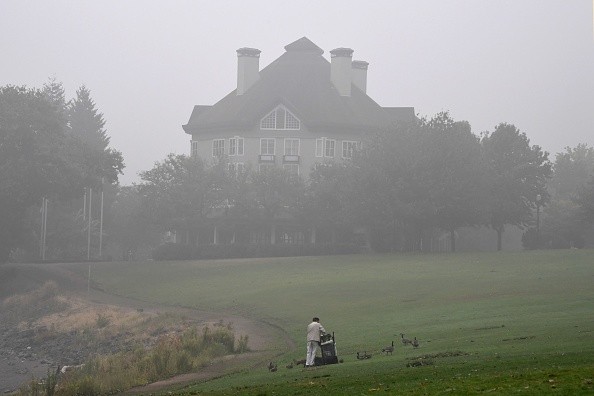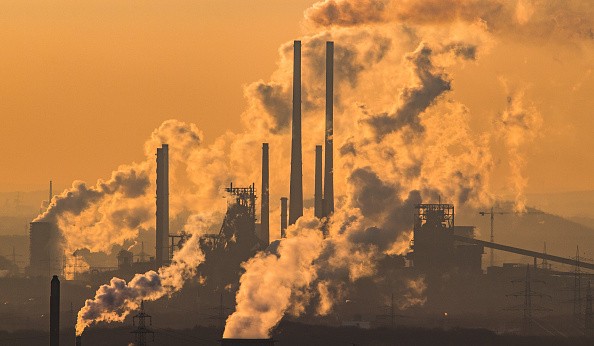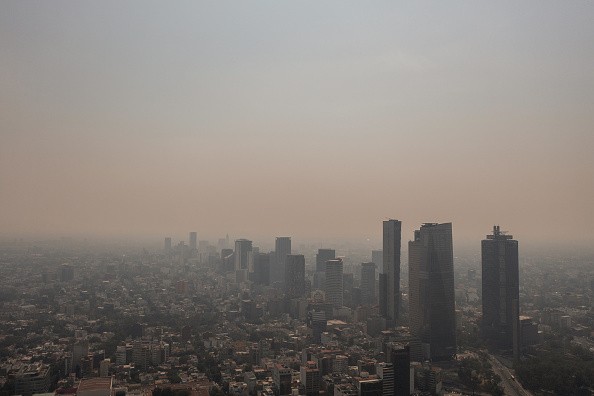For the first time since 2005, the World Health Organization (WHO) has strengthened air quality recommendations, warning that air pollution is one of the most severe environmental risks to human health, causing seven million premature deaths each year.

On Wednesday, the UN health agency said that immediate action was needed to minimize air pollution exposure, putting its illness burden "on par with other major global health concerns such as improper food and cigarette smoking."
"Almost all air quality guideline values have been modified downwards by the WHO, warning that exceeding the new... thresholds is associated with considerable health risks," it stated. "Follow them, and you could save millions of lives."
The new recommendations are intended to safeguard people from the harmful consequences of air pollution, and governments will use them as a basis for legally binding norms.
Strengthening Environmental Policies

The last time the WHO updated the standards was in 2005, and it had a big impact on initiatives to clean up the air around the world.
However, the UN health agency stated that a considerably greater body of evidence had evolved in the 16 years after that, demonstrating how air pollution harms health at lower concentrations than previously recognized.
The organization stated, "The combined evidence is sufficient to justify steps to limit population exposure to important air pollutants, not only in specific nations or areas but on a worldwide basis."
Environmental Violation
According to Greenpeace, many large cities worldwide are already in violation of the 2005 limits, and more concrete action is urgently needed.
"What counts most is whether governments execute effective measures to reduce pollution emissions, such as halting coal, oil, and gas investments and favoring clean energy transitions. Failure to satisfy the previous WHO criteria must not be repeated," said Aidan Farrow, a Greenpeace International Air Pollution Scientist at the University of Exeter in the United Kingdom.
WHO Standards
The WHO's new standards contain recommendations for ozone, nitrogen dioxide, sulfur dioxide, and carbon monoxide air quality thresholds for six contaminants.
The other two are PM10 and PM2.5, particulate matter with diameters of 10 and 2.5 microns, respectively.
Both can penetrate deep into the lungs, but research has shown that PM2.5 can also enter the bloodstream, causing cardiovascular and respiratory difficulties as well as impacting other organs, according to the WHO.
As a result, the PM2.5 guideline level has been cut in half.
According to the WHO, more than 90% of the world's population lived in locations where PM2.5 concentrations above the 2005 AQG for long-term exposure in 2019.
Data from IQAir showed that 79 of the world's 100 most populated cities had annual mean PM2.5 air pollution levels that were above the 2005 standards last year, according to Greenpeace. According to the report, 92 people would violate the criteria if they were tightened.
Delhi (where PM2.5 levels were 17 times higher), Lahore (16 times higher), Dhaka (15 times higher), and Zhengzhou (15 times higher) were among the cities with the worse air (10-fold)
It was highlighted that no PM2.5 data was available in eight of the world's ten largest cities.
Enacting Before the Climate Conference

The new recommendations are released just weeks before the COP26 global climate conference in Glasgow, Scotland, on October 31.
According to the WHO, air pollution, along with climate change, is one of the greatest environmental hazards to human health. It went on to say that improving air quality would help with climate change mitigation efforts and vice versa.
"Air pollution is a health issue in all nations, but it disproportionately affects people in low- and middle-income countries," said WHO Director-General Tedros Adhanom Ghebreyesus.
While air quality in high-income nations has improved significantly since the 1990s, the worldwide toll in deaths and lost years of healthy life has barely decreased, according to the WHO, as air quality has usually deteriorated in most other countries, in line with their economic development.
According to the WHO, "every year, air pollution is expected to cause seven million premature deaths and the loss of millions more healthy years of life."
Reduced lung growth and function, respiratory infections, and asthma flare-ups are all possibilities in youngsters.
The most prevalent causes of early death in adults due to outdoor air pollution are coronary heart disease and stroke.
For more environmental news updates, don't forget to follow Nature World News!
© 2026 NatureWorldNews.com All rights reserved. Do not reproduce without permission.





